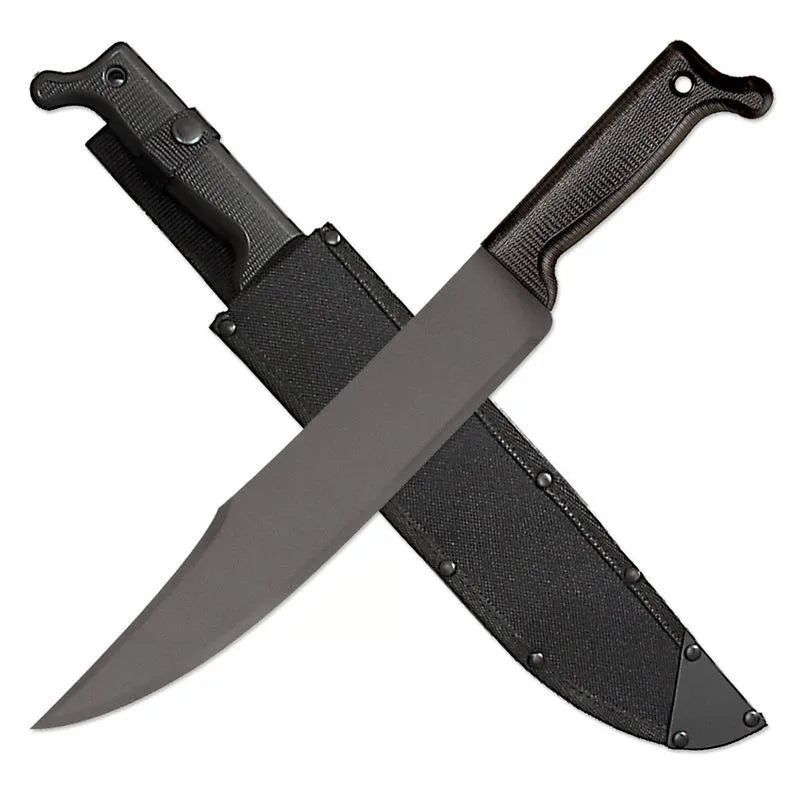
How do You Choose a Wonderful Knife?
A quality knife is not only a tool for the kitchen. It is part of every serious cooking practice, as well as a go-to for many who undertake outdoor adventures, and, for some, an appealing collector's item. With so many types and features, How do you choose a wonderful knife? So, here we go with the all-important factors in deciding which is the perfect knife for your needs.
Identify the purpose of the knife
Here are some knives made for special purposes:
- A chef's knife for handy kitchen work- slicing, dicing, chopping.
- The paring knife for precise work- peeling or cutting small fruits
- Survival or hunting knives- these were made to be extensively built and taken outside.
- Bread knives are highly serrated, and helpful when trying to slice the crunch of a crust without smashing it.
Determining the primary usage will make it easier for you to narrow down your options and choose the proper knife with the right task in mind.
Looking for a versatile tool? Check out our collection of high-quality pocket knives, designed for convenience and portability!
Buy a bowie knives.
Blade Material
The material used for the blade determines greatly the durability and efficiency of the knife. There are the following main types:
- Stainless Steel: Does not rust or corrode easily, easy to care for; however, may be sharpened often.
- Carbon Steel: May retain a sharp edge well, but is rather prone to rust if it's not maintained.
- Ceramic: Extremely light, and nearly ridiculously sharp, though a bit brittle in addition tends to chip easily.
Consider what your needs and wants are in terms of maintenance. If you desire something that is low-maintenance, stainless steel would be ideal.
Need a reliable knife for skinning? Check out our premium skinner knives, crafted for precision and durability in the field!
Focus On The Handle Comfort
A knife must feel right in your hand. A well-designed comfortable handle will make it easier and safer to cut. Consider the following:
- Material: Knife handles come in wood, plastic, and metal. All have different feels and weights.
- Grip: Some handles have textured grips for added security, useful if your hands are wet.
- Balance: A well-balanced knife feels much easier to control. Just balance it by holding it in your hand.
Blade Length and Shape Matter
The length and shape of a knife's blade affect what the knife can do well. For instance:
- Long blades (8–10 inches) are good for slicing and chopping larger ingredients.
- Shorter blades (3–4 inches) are better for more detailed work, like peeling and coring.
- Curved edges allow for rocking motions, making chopping faster.
- Straight edges give more control for precision cuts.
Consider what you will be cutting most often and choose a blade shape and length that matches your needs. Check out the elegance and strength of bone handle knives, combining traditional style with exceptional performance for all your cutting needs!
Test The Sharpness And Edge Retention
Choose a knife with a fine edge that should be retained sharp. Some hints:
- Edge Retention: Generally, knives made from high-carbon and quality stainless steel retain their edges longer.
- Sharpness Test: Experiment running the knife through a piece of paper or slicing a tomato. If it cuts smoothly, it's sharp enough.
A sharp knife not only cuts better but also keeps the risk of accidents low in the kitchen. Experience the power and craftsmanship of a Kukri knife, built to handle tough tasks with a striking, unique design!
Check the Weight and Balance
Weight and balance can determine how easy it is to use a knife. Some prefer a light knife for swift movements, while others find that the weight of a heavier blade gives them control. To find the right weight:
- Try a few different knives: Sustain more than one knife in the hand.
- Ideally, the knife balance point should occur right where the blade meets the handle.
A good balance is really easier to control and, for precision tasks, they need that.
Buy a meat cleaver.
The Bottom Line
How do you choose a wonderful knife? It is essentially just a matter of what you need and then trial and error with the knife. Think about the blade material, the comfort of the handle, or just what you want the knife for. With the right knife, cooking or all your outdoor activities will not only be a pleasure but also efficient and safe. Invest your time in finding the right fit, and you will enjoy years of reliability from this well-chosen tool.
Visit Knives Hives for a wide selection of top-quality knives, including pocket knives, skinners, and more, perfect for outdoor enthusiasts and collectors!








